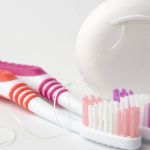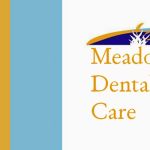How to Get Rid of Bad Breath Fast: Effective Tips and Tricks
- Understanding Bad Breath
- Common Causes of Bad Breath
- Quick Remedies for Bad Breath
- Long-Term Solutions for Bad Breath
- When to See a Dentist for Bad Breath
Understanding Bad Breath
Bad breath, or halitosis, is something most people experience at some point in their lives. It can occur in a variety of situations, from the morning after a night’s sleep to during stressful situations or after consuming certain foods like garlic. While bad breath can be embarrassing, it's also a sign that something may be amiss in your oral health or overall well-being.
Bad breath typically occurs due to bacteria breaking down food particles or dead cells in your mouth, producing sulfur compounds that have an unpleasant odor. In most cases, bad breath is a temporary issue that can be remedied with good oral hygiene or by addressing the underlying cause. However, persistent bad breath may indicate a more serious underlying issue that requires professional care.
This article will explore various methods to get rid of bad breath fast, as well as longer-term solutions to prevent it from recurring. Whether it’s caused by food, dry mouth, or gum disease, understanding the cause and knowing how to address it effectively can help you feel more confident and comfortable in social situations.
Common Causes of Bad Breath
There are many potential causes of bad breath, some of which are more common than others. Here are some of the most frequent causes of bad breath:
- Food and Drink: Certain foods like garlic, onions, and spicy dishes can contribute to bad breath due to their strong odor. These foods contain compounds that are absorbed into your bloodstream and then exhaled through your lungs, making your breath smell unpleasant.
- Dry Mouth: Saliva helps clean the mouth and remove food particles that cause bad breath. A dry mouth, often caused by dehydration, certain medications, or health conditions, can lead to an increase in bad breath.
- Poor Oral Hygiene: If you don’t brush and floss regularly, food particles can remain in your mouth, and plaque can build up on your teeth and gums. This can result in bad breath, as well as gum disease, which is another common cause of halitosis.
- Gum Disease: Gingivitis and periodontitis are bacterial infections that can cause bad breath. The infection in your gums can release foul-smelling compounds, especially if left untreated.
- Health Conditions: Certain health conditions such as diabetes, respiratory infections, and digestive disorders can also cause persistent bad breath. These conditions can affect your breath in different ways, often due to the chemical imbalances they cause in your body.
Quick Remedies for Bad Breath
If you’re looking for fast solutions to get rid of bad breath, there are several simple remedies you can try to neutralize odors quickly. Here are some effective methods:
- Drink Water: One of the quickest and easiest ways to reduce bad breath is by drinking water. Water helps to flush out food particles and bacteria from the mouth, keeping your mouth moist and reducing the odor-causing bacteria.
- Chewing Sugar-Free Gum: Chewing gum stimulates saliva production, which helps wash away food particles and neutralizes bad odors. Opt for sugar-free gum with xylitol, as it can also reduce plaque buildup and improve oral health.
- Brush and Floss: Brushing your teeth and flossing regularly is the most effective way to eliminate bad breath. Use a toothbrush with soft bristles and fluoride toothpaste to remove food particles and plaque. Don’t forget to brush your tongue, where bacteria can build up.
- Use Mouthwash: An alcohol-free mouthwash can help kill bacteria and mask bad breath. Look for mouthwashes that contain antimicrobial agents, such as cetylpyridinium chloride or chlorhexidine, to get rid of bacteria that cause halitosis.
- Eat Fresh Herbs: Herbs like parsley, mint, and cilantro have natural antibacterial properties and can help neutralize bad breath. Chewing on a small amount of fresh parsley or mint can provide a temporary solution when you’re on the go.
Long-Term Solutions for Bad Breath
While quick remedies can help alleviate bad breath in the short term, it’s important to address the underlying causes for long-lasting results. Here are some steps you can take to ensure that bad breath doesn’t become a recurring issue:
- Maintain Proper Oral Hygiene: Brush your teeth at least twice a day and floss daily to remove food particles and plaque. Use a tongue scraper to clean the surface of your tongue, which can harbor bacteria that contribute to bad breath.
- Regular Dental Checkups: Visit your dentist regularly for cleanings and checkups. A dentist can identify and treat conditions like gum disease or cavities, which may be contributing to your bad breath.
- Stay Hydrated: Drink plenty of water throughout the day to prevent dry mouth. If your mouth tends to dry out, consider using a saliva substitute or a mouth rinse designed to help with moisture retention.
- Address Underlying Health Issues: If you have a medical condition that may be causing bad breath, such as diabetes or sinus infections, seek treatment from a healthcare provider. Managing your overall health can help alleviate halitosis.
- Avoid Certain Foods: Cut back on foods that are known to cause bad breath, such as garlic, onions, and sugary foods. If you do consume them, make sure to brush your teeth afterward or chew gum to freshen your breath.
When to See a Dentist for Bad Breath
If your bad breath persists despite your efforts to clean your mouth and manage your diet, it may be time to consult a dentist. Chronic bad breath can sometimes indicate an underlying health issue, such as gum disease or an infection, that requires professional treatment.
Your dentist can perform a thorough examination to identify the root cause of your bad breath. They may take X-rays or perform tests to detect any oral infections or conditions. If necessary, they will provide a treatment plan to address the issue and help you achieve fresher breath.
Additionally, if your bad breath is accompanied by other symptoms such as fever, pain, or swelling, it’s important to seek medical attention promptly, as these may be signs of a more serious condition.
Conclusion
Bad breath is a common problem, but it doesn’t have to be a long-term issue. By understanding the causes of bad breath and implementing both quick remedies and long-term solutions, you can maintain fresh breath and improve your overall oral health. Remember, consistency in oral hygiene, hydration, and regular dentist visits are key to preventing bad breath from coming back.
If you're struggling with persistent bad breath, don't hesitate to seek professional help. Dentistry Toothtruth offers expert dental services to help you maintain fresh breath and a healthy smile. Visit us to learn more about the best oral care practices and products to combat bad breath effectively.







 One Dental Tacoma4.0 (386 review)
One Dental Tacoma4.0 (386 review) Diamond Braces Orthodontist: Braces & Invisalign5.0 (1 review)
Diamond Braces Orthodontist: Braces & Invisalign5.0 (1 review) Stacey P. Blau, DDS0.0 (0 review)
Stacey P. Blau, DDS0.0 (0 review) Jianjun Hao, DDS, MS, PhD4.0 (1 review)
Jianjun Hao, DDS, MS, PhD4.0 (1 review) Armitage Dental - Abbas Nejad4.0 (146 review)
Armitage Dental - Abbas Nejad4.0 (146 review) Dentistry by Dr. David - Holistic and Zirconia Implant Dentist4.0 (313 review)
Dentistry by Dr. David - Holistic and Zirconia Implant Dentist4.0 (313 review) The Importance of Oral Health Education During Pregnancy for a Healthy Pregnancy
The Importance of Oral Health Education During Pregnancy for a Healthy Pregnancy Best Tips for Brushing Your Teeth Properly for Healthy Gums: Essential Techniques for Oral Health
Best Tips for Brushing Your Teeth Properly for Healthy Gums: Essential Techniques for Oral Health Why Skipping Dental Checkups Can Lead to Bigger Oral Health Problems
Why Skipping Dental Checkups Can Lead to Bigger Oral Health Problems Advantages of Porcelain Dental Restorations
Advantages of Porcelain Dental Restorations How Can Diabetes Cause Tooth and Gum Problems? Preventing and Managing Oral Health Issues
How Can Diabetes Cause Tooth and Gum Problems? Preventing and Managing Oral Health Issues Healthy Habits for Promoting Good Oral Health and Hygiene: Tips for a Healthy Smile
Healthy Habits for Promoting Good Oral Health and Hygiene: Tips for a Healthy Smile